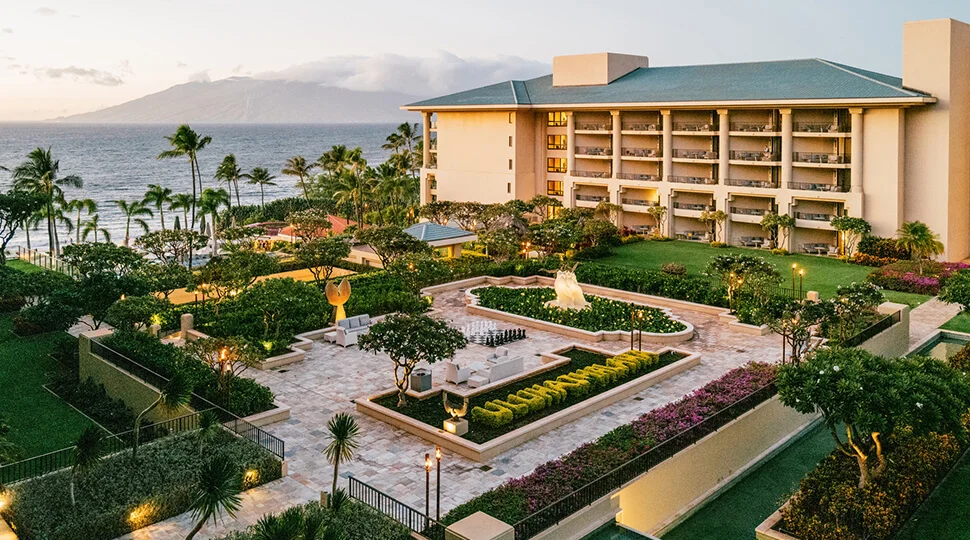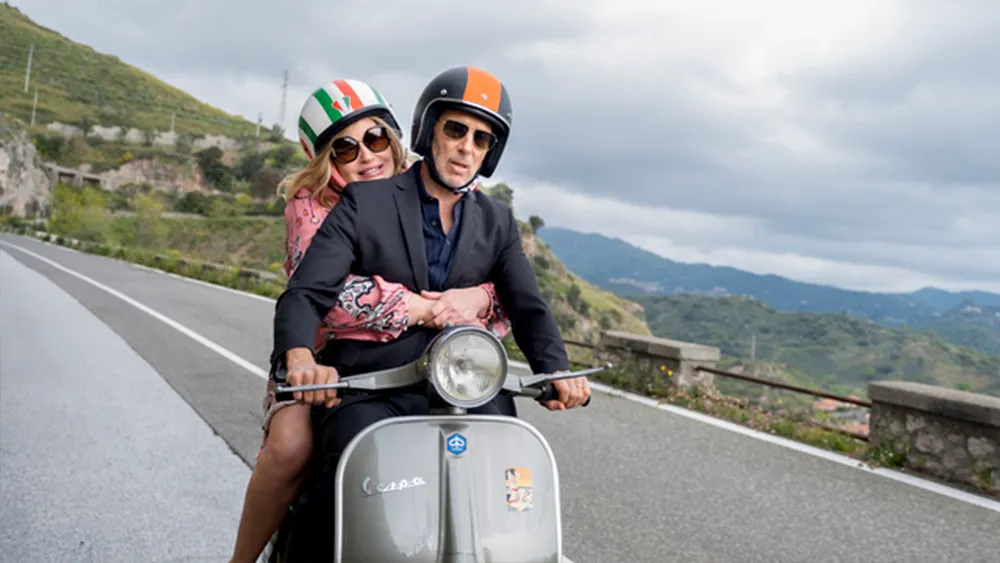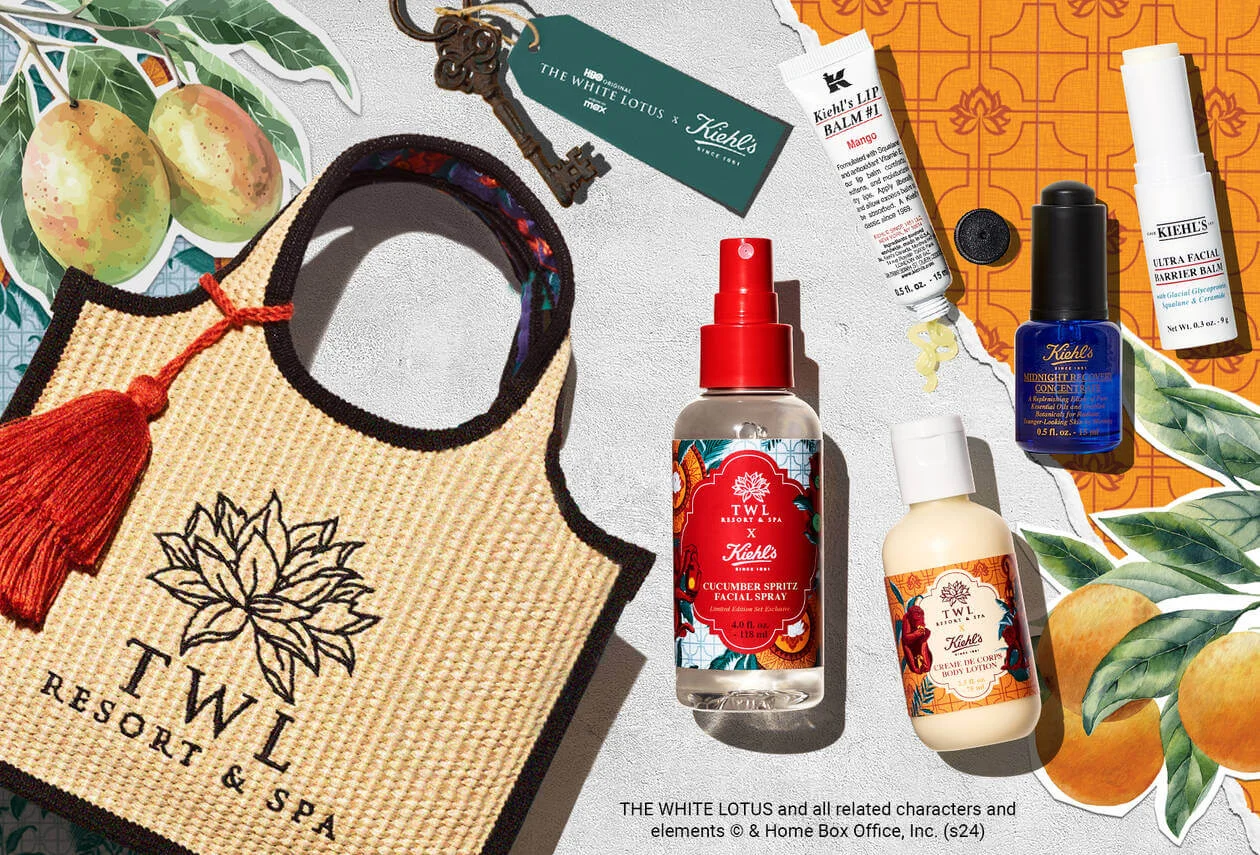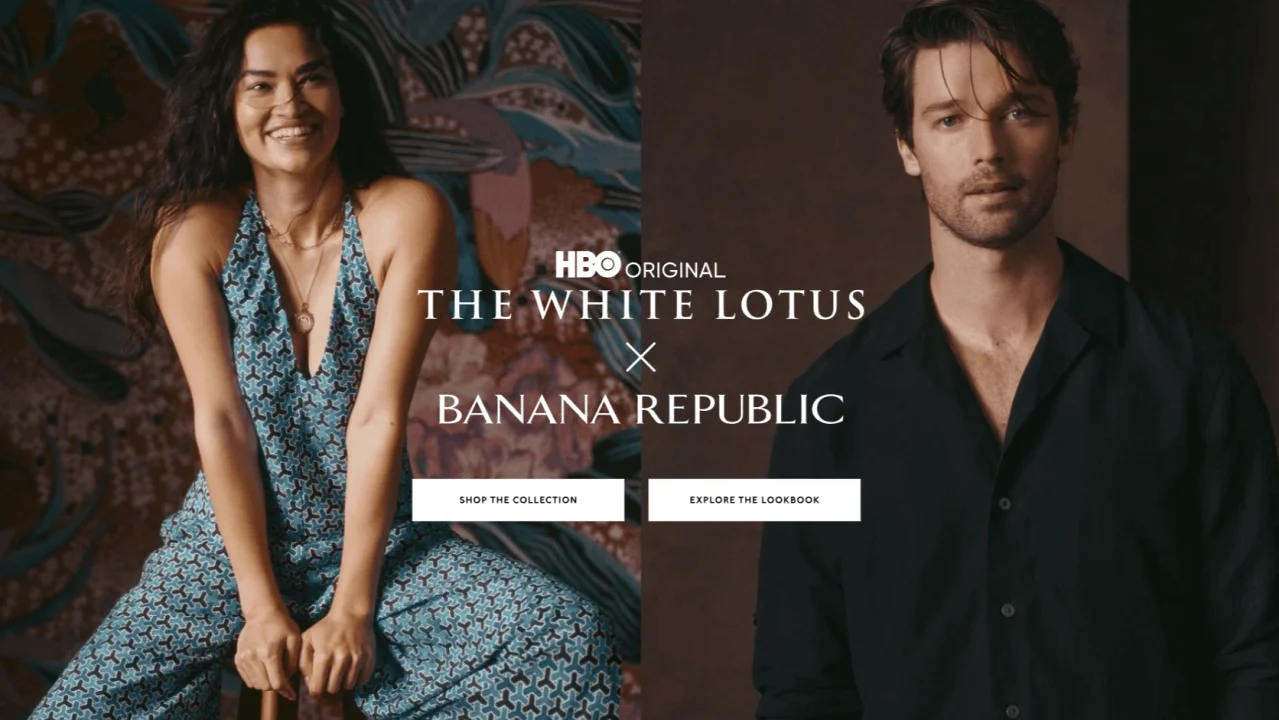Who knew a show about wealthy vacationers would become a marketing goldmine? But that’s exactly what happened with HBO’s “The White Lotus“, an award-winning anthology series set in luxury resorts that combines dark comedy with social satire and has captivated global audiences since 2021.
What started as a pandemic-era production (filmed in a bubble at one resort) has morphed into something far bigger. The numbers are remarkable – Four Seasons Maui saw bookings rocket up 300% after the first season, according to hospitality industry reports. Sicily hotels? Completely booked solid after Season 2. And Thailand Airbnb rentals increased by approximately 500% in the two days following the premiere of The White Lotus Season 3, compared to the same period in 2024.
Small business owners should be paying attention. This isn’t just some TV phenomenon – it’s a roadmap for marketing that doesn’t require HBO’s budget or connections.
Regular Businesses Can Ride This Wave Too
The stats keep coming. Four Seasons Maui website traffic shot up 425% after Season 1, according to the company’s Chief Commercial Officer. Sicily web searches doubled right after Season 2, based on Google Trends data. Thailand tourism searches for next year increased by an impressive 412% after Season 3 was announced, according to travel industry reports.
This didn’t happen by accident. There’s a whole trend now called “set-jetting” where people pick vacation spots based on shows they’re obsessed with. Look at Koh Samui – searches jumped 115% in Singapore, 95% in America, and 70% in Australia right after Season 3 hit screens, as reported by Expedia. And luxury Airbnb rates in these spots went up 28%, according to short-term rental market analysts.
Here’s the good part for small business owners – you don’t need beachfront property to cash in on this. Cultural waves create ripples that reach businesses everywhere, not just fancy resorts. Understanding how to ride these waves without forcing connections requires the same strategic thinking that makes viral marketing campaigns successful—it’s about authentic participation in cultural moments rather than obvious brand insertion.

Catching the Location Vibe Without the Resort Price Tag
The Four Seasons-HBO hookup created what their Chief Commercial Officer called an “incredible halo effect” across their brand. Thailand went even further by offering tax breaks to get Season 3 filmed there. They knew the tourism boost would more than pay for those incentives.
Small businesses can play along too:
Look around you. Got any films or shows shooting nearby? That’s untapped potential right there. Those Sicily businesses had zero official connection to White Lotus but quickly threw together themed tours, drinks, and experiences after Season 2 hit. Tourists enthusiastically embraced these offerings.
Connect with local tourism boards. They’re already promoting filming locations and would likely welcome adding your business to their promotional packages.
Without a filming connection? Create a thematic experience that resonates. A coffee shop could create a tasteful “Tropical Escape” corner with appropriate décor and themed offerings that transport customers somewhere new, while respecting cultural elements.

Creating Buzz Through Scarcity
The White Lotus builds anticipation through its storylines and cliffhangers that keep audiences talking between episodes. This strategy extends beyond just the weekly release schedule common to most networks – it’s about creating conversation-worthy moments.
H&M released a 25-piece White Lotus collection as a limited-edition offering. Kiehl’s “Resort ReSet Collection” featured special White Lotus branding as a seasonal exclusive. These brands leveraged the principle of scarcity by marketing these items as available “for a limited time only,” creating a sense of urgency among consumers.
Small businesses can use this playbook:
- Release products in limited quantities that might sell out
- Create experiences with clear capacity limits
- Develop seasonal offerings tied to relevant cultural moments
A local bakery could offer “Sicilian Summer” pastries for just six weeks, generating interest without substantial marketing expenditure. The key is understanding that creating scroll-stopping content around these limited offerings requires more than just scarcity—it needs compelling storytelling that makes people pause and take notice.
A coffee shop might draw inspiration from Coffee Mate’s White Lotus-themed creamers with special drinks available for a limited time.

Joining Cultural Conversations That Are Already Happening
During the February-March 2025 season run, White Lotus triggered over 1.38 million social posts from about 500,000 different users, generating 8.4 million engagements across platforms, according to social media analytics firm Sprinklr. Those compelling cliffhanger endings kept everyone guessing and talking.
People now “second-screen” – watching shows while simultaneously chatting online – which created 775 million conversation instances connecting the show and Thailand during the three-week premiere period, based on social listening data. This represents essentially organic marketing reaching millions of potential customers.
Even tiny businesses can get involved:
- Join trending hashtags with something actually worth saying
- Create spaces for fans – maybe a Facebook group or Instagram Live tied to episodes
- Make content that connects to what people already care about
Thailand businesses saw social mentions jump 60% in the week following Season 3’s premiere, with 99% positive sentiment, according to social media analytics. These mentions translated directly to bookings and sales.
Don’t just throw content out there – ask questions, run polls, invite theories. Turn customers into active participants instead of passive scrollers. However, it’s worth noting that traditional social media tactics like hashtags are becoming less effective—focus on genuine engagement and conversation rather than hoping the right tags will get you discovered.

Teaming Up Makes Everyone Stronger
The brand partnerships around White Lotus expanded significantly – H&M and Banana Republic jumped in with fashion, Kiehl’s and Supergoop did beauty products, Coffee Mate made themed creamers, and CB2 launched home goods collections.
The smartest brands didn’t wait to see if the show would be a hit – they planned product launches to match premiere dates, getting ahead of trends instead of chasing them after everyone else. This proactive approach mirrors why some competitors’ ads work better than others—they understand timing, cultural relevance, and audience needs rather than just copying what everyone else is doing.
Small businesses worldwide can do something similar by finding local partners who complement what they do:
• A small hotel could team up with a local spa for weekend packages
• A clothing shop could partner with a jewelry store for complete outfit solutions
• A restaurant and cocktail bar could create themed dinner-and-drinks nights
Collaborative marketing amplifies results. That social media campaign neither of you could afford alone suddenly becomes possible together. An event that draws twice your normal crowd helps both businesses while splitting costs.

Stories People Actually Connect With
Each White Lotus season dives into different local cultures – Hawaiian wellness in Season 1, Sicilian traditions in Season 2, Thai spiritualism in Season 3. Yet despite totally different settings, the fictional resort maintains its luxury feel throughout.
For smaller businesses, the lesson is clear:
• Share genuine local connections that feel real, not manufactured
• Keep your core brand consistent while adapting to local contexts
• Let actual personalities shine through – people connect with people, not corporate speak. This is where leveraging internal knowledge for content becomes invaluable—sharing authentic employee stories, behind-the-scenes moments, and genuine local connections creates the kind of relatability that no corporate messaging can replicate.
• Embrace “wanderchaos” (the show’s portrayal of imperfect travel situations) because perfect marketing often feels fake while authentic moments build trust
Create One Thing People Remember
That distinctive White Lotus theme song gets stuck in your head after hearing it once. It’s unique, odd, and incredibly memorable. Combined with consistent visual style, it creates instant recognition.
Every business benefits from one memorable signature element:
• Perhaps distinctive packaging customers repurpose
• A unique audio identity within your locations
• A visual element that immediately identifies your brand
A clothing retailer using distinctive yellow shopping bags with a recognizable pattern creates walking advertisements throughout the community. A local pizzeria where staff announce orders with a signature phrase creates a memorable experience. These aren’t expensive tactics – they’re brand identifiers that customers immediately associate with those businesses. Like sustainable startups that rise above the noise, small businesses need distinctive elements that make them memorable in crowded markets—whether that’s unique packaging, signature experiences, or consistent visual identity that tells their story.
Measure What Actually Matters
The White Lotus effect appears in quantifiable results: Four Seasons Maui website traffic increased 425% in the month after Season 1, according to the hotel chain’s data. Thailand social mentions rose 60% within a week of Season 3’s premiere, based on social listening platforms. Airbnb bookings in filming locations grew 500% compared to the same period last year, as reported by short-term rental analytics.
Track these performance indicators:
- Website traffic patterns before and after cultural marketing initiatives
- Social engagement metrics during themed campaigns
- Sales conversions directly attributed to these efforts
- Customer sentiment and feedback across channels
The Bottom Line: Cultural Relevance Drives Results
Cultural currency converts directly to actual dollars. The White Lotus effect proves that cultural relevance drives business results. And small businesses have an edge here – they can pivot quickly without corporate approval processes or committees slowing everything down.
When businesses tap into cultural moments through genuine experiences, smart partnerships, and something distinctively memorable, size doesn’t matter nearly as much as relevance. The best marketing doesn’t feel like marketing at all – it feels like being part of something exciting that’s happening right now. That opportunity is just as available to the corner store as it is to the luxury resort.
FAQs
1. What is set-jetting and how does it affect local businesses?
Set-jetting is when people choose travel destinations based on TV shows or movies they’ve watched. After The White Lotus aired, bookings jumped 300% at filming locations like Four Seasons Maui and Sicily hotels. Even if your business isn’t in a filming location, you can still benefit by creating experiences that capture the same vibe or aesthetic. Local businesses near filming locations often see increased foot traffic from tourists wanting to experience what they saw on screen.
2. What are partnership marketing strategies for small businesses?
Partnership marketing works when businesses with complementary audiences team up for campaigns, events, or promotions. A local hotel might partner with a spa for weekend packages, or a restaurant could team up with a nearby cocktail bar for dinner-and-drinks nights. During cultural moments like popular TV shows, multiple businesses can create themed experiences together. This splits costs while reaching larger audiences and creates more comprehensive experiences for customers.

